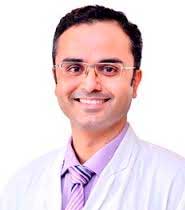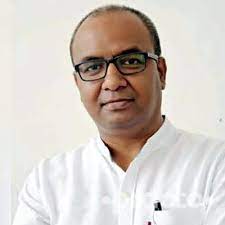Ovarian Cancer Surgery IN INDIA
Ovarian cancer, a complex yet treatable condition, requires timely diagnosis and advanced medical intervention for effective management. Over the years, India has become a leading destination for ovarian cancer treatment, offering a blend of skilled oncologists, state-of-the-art medical facilities, and cost-effective solutions.
For international patients, navigating the healthcare system can be daunting. This is where Al-Afiya MediTour steps in, bridging the gap between patients and India’s premier healthcare providers. In this article, we delve into the intricacies of ovarian cancer, its treatment options, costs, and why India is a preferred choice for patients worldwide.
Understanding Ovarian Cancer
Ovarian cancer originates in the ovaries, which are vital reproductive organs in women. It often goes undetected in its early stages due to subtle symptoms, making timely diagnosis critical. The cancer typically manifests as epithelial ovarian cancer, but other rare forms, such as germ cell tumors, may also occur. If not treated promptly, it can spread to other parts of the body, necessitating advanced therapeutic approaches.
Ovarian cancer is a significant global health concern, particularly affecting women worldwide. It ranks as the eighth most common cancer in women and is among the leading causes of cancer-related deaths in females. Each year, approximately 300,000 new cases are diagnosed globally, with a majority occurring in developed countries.
The disease is often detected in advanced stages due to the lack of early symptoms, contributing to its high mortality rate. Globally, the five-year survival rate for ovarian cancer varies, depending on the stage at diagnosis, ranging from 92% for early-stage detection to less than 30% for advanced-stage diagnoses. In many low- and middle-income countries, limited access to healthcare facilities and diagnostic tools worsens survival outcomes.
In India, ovarian cancer is the third most common gynecological cancer, following cervical and breast cancer. Reports suggest that the annual incidence rate is around 36,000 cases, and the mortality rate is high, with many cases diagnosed at later stages. The age-standardized incidence rate in India is approximately 7 per 100,000 women, which is lower than in Western countries, but the burden is significant due to the country’s large population.
Efforts to improve survival rates globally and in India focus on early diagnosis, increased awareness, access to better healthcare infrastructure, and advancements in treatment techniques such as targeted therapy and minimally invasive surgery.
Treatment Options for Ovarian Cancer in India
India offers a comprehensive range of treatments for ovarian cancer, tailored to each patient’s medical condition and the cancer stage. The most common treatment modalities include:
- Surgical Intervention: Involves removal of the ovaries, fallopian tubes, or uterus (hysterectomy) depending on the spread. Advanced surgeries also target nearby lymph nodes and tissues.
- Chemotherapy: A systemic approach using drugs to destroy cancer cells. It is often used before or after surgery to enhance outcomes.
- Targeted Therapy: Focuses on attacking specific proteins or genes within cancer cells, minimizing damage to healthy cells.
- Immunotherapy: Boosts the immune system’s ability to combat cancer effectively.
- Radiation Therapy: Utilizes high-energy radiation to shrink tumors or destroy residual cancer cells.
- Hormone Therapy: May be employed for hormone-sensitive ovarian cancers to slow down growth.
Indian hospitals employ cutting-edge technology, such as robotic surgery, PET-CT scans, and molecular diagnostics, to ensure precision in diagnosis and treatment.
Why Choose India for Ovarian Cancer Treatment?
India has earned global recognition as a hub for ovarian cancer treatment. Here are the reasons why:
- Highly Experienced Oncologists: Indian cancer specialists are globally renowned, with extensive training and experience in managing complex cancer cases.
- Advanced Technology: Hospitals in India are equipped with the latest medical innovations, including robotic surgery, high-precision radiation therapy, and molecular diagnostics.
- Affordable Care: The cost of ovarian cancer treatment in India is significantly lower than in countries like the USA, UK, or Australia, often saving patients up to 70%.
- Comprehensive International Patient Services: Indian hospitals cater extensively to international patients, offering seamless services such as visa assistance, language support, and personalized care plans.
- Holistic Approach: Treatment in India focuses not only on medical intervention but also on post-treatment rehabilitation, nutritional counseling, and psychological support.
What are the Costs of Ovarian Cancer Treatment in India?
India’s affordability is a key factor attracting patients from across the globe. Below is an estimated cost breakdown for various treatments:
| Treatment/Procedure | Estimated Cost (USD) | Estimated Cost (INR) | Comparison with Other Countries |
| Surgery | $5,000 – $10,000 | ₹4,15,000 – ₹8,30,000 | 60-70% cheaper |
| Chemotherapy (per cycle) | $500 – $1,500 | ₹41,500 – ₹1,24,500 | 50-60% cheaper |
| Targeted Therapy (per cycle) | $1,500 – $3,000 | ₹1,24,500 – ₹2,50,000 | 40-50% cheaper |
| Radiation Therapy | $4,000 – $6,000 | ₹3,32,000 – ₹5,00,000 | 50% cheaper |
| Diagnostic Tests (CT, MRI, Biopsy) | $500 – $1,000 | ₹41,500 – ₹83,000 | 50% cheaper |
Several factors influence the overall cost of ovarian cancer treatment in India. These factors can vary based on the individual patient’s needs, the complexity of the case, and the choice of hospital. Here are the main factors that affect the treatment costs:
-
-
Cancer Stage:
The stage of ovarian cancer plays a crucial role in determining the overall treatment plan and costs.
Early-Stage Cancer: For cases detected in the early stages, treatment may involve surgery and a limited course of chemotherapy, resulting in lower costs.
Advanced-Stage Cancer: For more advanced cases, where cancer has spread to other areas, multiple therapies such as extensive chemotherapy, targeted therapy, radiation, and sometimes immunotherapy are required, increasing the overall cost.
-
Hospital Type:
The type of hospital chosen for treatment can significantly affect the cost.
Premium Hospitals: Hospitals with advanced infrastructure, state-of-the-art technology, and international accreditations (like JCI, NABH) tend to charge higher fees for their services.
Specialist Cancer Centers: Some hospitals specialize in cancer treatment, offering advanced care and cutting-edge treatments, which can lead to higher treatment expenses.
General Hospitals vs. Specialty Hospitals: General hospitals may offer lower-cost treatment, but specialty cancer centers may provide a more comprehensive treatment plan and better outcomes, albeit at a higher price.
-
Room Category:
Accommodation costs are an essential factor that affects the overall cost of treatment.
Standard vs. Private Rooms: Treatment costs will vary based on the type of room selected. Private rooms or suites with better facilities and more privacy generally come with higher costs compared to shared or general ward accommodations.
Extended Stay: Patients who need prolonged hospital stays due to complications or follow-up treatments may incur additional room charges, further impacting the total treatment cost.
- Additional Medical Services:In addition to the core treatment, several other medical services can add to the cost of ovarian cancer treatment.
-
-
- Consultations with Specialists: Multiple consultations with oncologists, radiologists, or other specialists may be needed to tailor the treatment plan, adding to the expenses.
- Diagnostic Tests: Frequent diagnostic tests (such as blood tests, CT scans, MRIs, and biopsies) may be required throughout the treatment process, contributing to the overall cost.
- Unforeseen Complications: If complications arise during treatment, such as infections, surgery-related issues, or side effects from chemotherapy, additional medical interventions or hospital stays may be required, thus increasing costs.
- Rehabilitation and Aftercare: Post-treatment services such as physiotherapy, counseling, and long-term follow-up care can also impact the total cost of treatment.
-
-
-
Why Choose Al-Afiya MediTour?
Al-Afiya Medical Tourism ensures a seamless experience for international patients by offering:
- Partnerships with India’s top hospitals and oncologists.
- Comprehensive treatment packages covering medical costs, accommodation, transportation, and more.
- 24/7 multilingual support to address all patient concerns.
- Transparent pricing and complete assistance with visa and travel arrangements.
Common Symptoms of Ovarian Cancer
Recognizing the symptoms of ovarian cancer is the first step toward early detection and successful treatment. Key symptoms include:
- Persistent bloating or abdominal swelling.
- Pelvic or lower abdominal pain.
- Frequent urge to urinate.
- Difficulty eating or feeling full quickly.
- Unexplained fatigue, back pain, or weight loss.
These symptoms can often mimic less severe health conditions, underscoring the importance of regular health check-ups and early diagnostic interventions.
What are the Pre-Treatment Procedures of Ovarian Cancer?
Before initiating treatment, patients undergo a series of preparatory steps:
- Consultation with Oncologists: Comprehensive discussions to outline the treatment plan.
- Diagnostic Tests: Imaging (CT, MRI, PET scans), blood tests, and biopsies to confirm the diagnosis and cancer stage.
Pre-Surgical Optimization: Addressing pre-existing health issues to ensure a smooth surgical process.
What are the Post-Treatment Care Procedures of Ovarian Cancer?
Recovery and monitoring are crucial for achieving long-term success. Post-treatment care includes:
- Hospital Stay: Close monitoring for complications and initial recovery.
- Follow-Up Check-Ups: Regular imaging and blood tests to detect recurrence.
- Rehabilitation Services: Physiotherapy, nutritional support, and psychological counseling to aid recovery.
Cancer Surveillance: Long-term screening programs for early detection of recurrence.
Top Ovarian Cancer Surgery Doctors in India
The right doctor to consult for a Ovarian Cancer Surgery case.
Dr. Vinod Raina
Year of experience: 50
Senior Consultant at Fortis Memorial Research Institute, Gurgaon
Dr. Rakesh Chopra
Year of experience: 15 years of experience
Dr. Amit Agarwal
Year of experience: 20 years of experience
Dr. Ajay Kumar Kriplani
Year of experience: 33 Years of Experience
Dr. Akshay Tiwari
Year of experience: 18 Years of Experience
Head of the Department at Max Super Speciality Hospital, Saket, Delhi
Dr. Surender Kumar Dabas
Year of experience: 12 years of experience
Dr. Satya Prakash Yadav
Year of experience: 23
Senior Consultant at Medanta The Medicity
Dr. Sabyasachi bal
Year of experience: 30
Senior Consultant at Sir Ganga Ram Hospital, Delhi
Dr. Rayaz Ahmed
Year of experience: 17+ Years of Experience
Dr. Kanchan Kaur
Year of experience: 17 years of experience
Dr. Rashmi Pyasi
Year of experience: 20 years of experience
Dr. Meenu Walia
Year of experience: 27 years of experience
Leading Hospitals for Ovarian Cancer Surgery in India
Looking For The Best Doctor & Hospital?
Fill up the form and get assured assitance within 24 hrs!
What is the success rate of ovarian cancer treatment in India?
Success rates depend on the stage at diagnosis. Early-stage treatments have survival rates of up to 90%, while advanced stages may range between 20-30%.
FAQs
- What is ovarian cancer, and how is it treated?
Ovarian cancer is a malignancy originating in the ovaries. Treatment options include surgery, chemotherapy, radiation, targeted therapy, and immunotherapy, depending on the stage and type of cancer. - What are the common symptoms of ovarian cancer?
Symptoms include bloating, pelvic pain, frequent urination, and unexplained fatigue. - Why is India a popular destination for ovarian cancer treatment?
India offers world-class medical expertise, advanced facilities, and affordable costs, making it a preferred choice for cancer care. - What are the costs of ovarian cancer treatment in India?
Treatment costs vary, with surgeries ranging from $5,000 to $10,000 and chemotherapy cycles costing $500 to $1,500. - How does Al-Afiya MediTour assist patients?
Al-Afiya provides end-to-end support, from hospital selection to travel and post-treatment care, ensuring a hassle-free medical journey. - What factors influence the cost of ovarian cancer treatment in India?
The treatment cost depends on factors such as the cancer stage, the type of hospital (general or specialty), room category, and additional medical services like diagnostics, consultations, and aftercare. - Which is the best hospital in India for ovarian cancer treatment?
Renowned hospitals for ovarian cancer treatment in India include Tata Memorial Hospital (Mumbai), AIIMS (New Delhi), Apollo Hospitals (Chennai), Fortis Memorial Research Institute (Gurgaon), and Artemis Hospital (Gurgaon). - Who are the top doctors for ovarian cancer treatment in India?
Prominent oncologists include Dr. Suresh Advani (Mumbai), Dr. Vinod Raina (Gurgaon), Dr. Ashok Vaid (Gurgaon), and Dr. Ramesh Sarin (Delhi), known for their expertise in managing ovarian cancer cases. - Is early detection of ovarian cancer possible?
Early detection is challenging as symptoms often mimic common conditions. Regular screenings and prompt evaluation of persistent symptoms are critical for early diagnosis. - Are international patients eligible for treatment in India?
Yes, Indian hospitals welcome international patients, offering comprehensive care packages and services such as visa assistance, airport transfers, and interpreters. - What diagnostic tests are required before ovarian cancer treatment?
Common tests include imaging (CT, MRI, PET scans), blood tests (CA-125 levels), and biopsies to confirm the diagnosis and assess the cancer stage. - How long does ovarian cancer treatment typically take?
The duration varies depending on the stage and treatment plan. Surgical recovery may take 2-4 weeks, while chemotherapy cycles may extend over several months. - What post-treatment care is available for ovarian cancer patients in India?
Post-treatment care includes follow-up visits, imaging tests, rehabilitation services, nutritional counseling, and emotional support to ensure a comprehensive recovery. - Can patients opt for minimally invasive surgery for ovarian cancer in India?
Yes, many hospitals in India offer minimally invasive options, such as laparoscopic or robotic surgery, which result in faster recovery and fewer complications. - Is medical insurance accepted for ovarian cancer treatment in India?
Most Indian hospitals accept international insurance. Patients are advised to verify coverage with their insurance providers and hospitals beforehand.
Get FREE Evaluation
Treatment plan and quote within within 24 hrs!
Let us help you
Get your personalized Estimate Now
Top Doctors & Surgeons in India
Best Hospitals in India
Best Treatments in India
Indian Medical Visa From
Copyright © 2025 Al Afiya Medi Tour | All Rights Reserved.









































